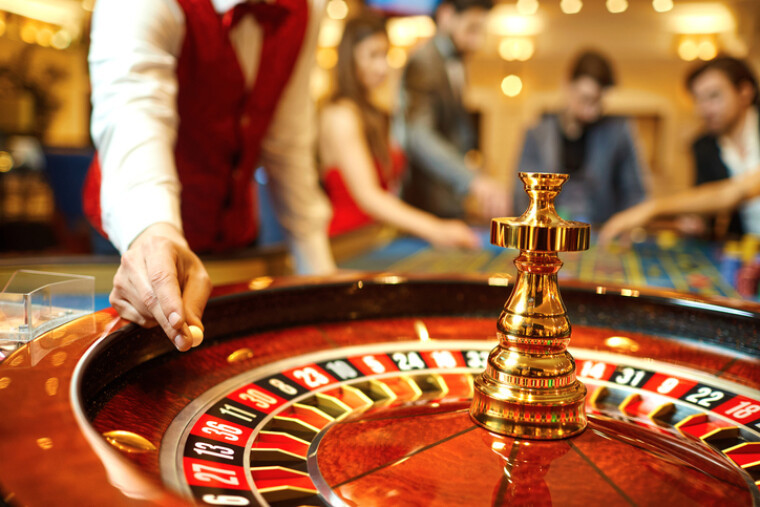Gambling at the Edge
Gambling, for many, is a source of thrill, entertainment, or even financial ambition. But for a lesser-discussed segment of players, it’s something else entirely – a fragile bridge between life and complete emotional collapse. For individuals confronting inner voids, depression, and suicidal ideation, gambling can paradoxically become a way to postpone self-destruction. Platforms like Librabet ελλαδα have observed emotional behavioral patterns indicating that players sometimes use betting not to win – but to buy time.
This article explores the concept of gambling as a form of emotional deferral: a mechanism to delay existential decisions by offering illusionary hope, structured routine, and temporary identity.
The Psychological Abyss Behind the Bet
Gambling as Existential Distraction
In psychological terms, a distracted mind is a delayed decision-making mind. Individuals teetering on the brink of emotional destruction may turn to the casino not for joy but for structure. The randomness of the slot, the mathematics of poker – these systems offer a semblance of order.
The Void-Filler Function
Where emotions collapse, routine often rushes in. Gambling can become a surrogate routine that keeps the psyche distracted just enough to avoid darker decisions. The thrill masks a deeper cry for help.
Case Studies: When Gambling Delays the Final Thought
Kostas, 44, Larisa
“When I had nothing else to look forward to, I still had the game. At casino, spinning reels gave me something to wake up for.”
Elena, 51, Athens
“I had mentally written a goodbye letter. But I played blackjack instead. Not because I expected to win, but because I wasn’t ready to lose to myself.”
These stories aren’t unique. They represent a hidden demographic that doesn’t gamble out of greed – but out of survival.
Expert Insight: Gambling as Emotional Triage
Dr. Nikos Mavros, Clinical Psychologist
“For some patients, gambling becomes a ritual of controlled chaos. It’s not a solution to their despair but a deferral mechanism – an emotional tourniquet.”
Maria Louka, Behavior Analyst
“Data from our platform show a pattern of late-night, isolated sessions with modest betting. These behaviors often align with emotional vulnerability and not traditional addiction.”
Mechanisms That Delay Despair
Illusion of Progress
Wins, even minor ones, create a cognitive narrative that life is not entirely hopeless. The illusion of upward movement can be emotionally life-saving.
Time Absorption
Hours spent in play are hours not spent in rumination. Time itself becomes a life-preserving buffer.
Reconnection with Emotion
The micro-highs and near-misses of gambling allow emotionally numb individuals to experience affect – even if fleeting.
The Dangers of Escapism with No Exit
Gambling as a Double-Edged Sword
While it may delay self-destruction, gambling can also exacerbate financial, social, and emotional decline if unchecked.
Risk of Deeper Isolation
Reliance on gambling for emotional survival can deepen withdrawal from meaningful relationships and coping strategies.
Signals of Emotional Crisis in Gamblers
Behavioral Patterns
- Increased solitary play
- Gambling at emotionally vulnerable hours
- Disinterest in winnings
Emotional Indicators
- Numbness during gameplay
- Frequent use of gambling to avoid sleep or reflection
- Lack of joy even during wins
Support Structures Within the Casino Framework
Emotional Analytics
Platforms track play patterns to identify users potentially in emotional crisis, using machine learning to flag at-risk behaviors.
User-Initiated Reflection Tools
Prompts encouraging players to pause, reflect, and check their mental state have been introduced as part of responsible gaming initiatives.
Towards Compassionate Gambling Environments
Human Touch in Digital Spaces
Live chats with trained staff and mental health referrals are increasingly being built into the online gambling ecosystem.
Adaptive Play Settings
Features that detect prolonged emotional vulnerability can suggest breaks, temporary exclusions, or even offer self-assessment quizzes.
Beyond Gambling: Redirecting Emotional Currency
Channeling Risk into Creativity
For many, the same emotional intensity channeled into gambling can be redirected into writing, art, or music – spaces that offer emotional processing rather than emotional pause.
Seeking Professional Help
Therapy, medication, and structured community support are long-term strategies far more sustainable than continuous gambling cycles.
Conclusion: When the Game Buys You Time
Gambling, particularly for those in emotional crisis, can be more than recreation – it can be existential negotiation. While it’s not a solution, it may act as a powerful delaying mechanism. At casino, the role of the platform extends beyond entertainment. With emotional awareness features and behavioral tracking, it seeks to support those using gambling as a way to postpone – not confront – their inner darkness.
Recognizing this reality is crucial. Because sometimes, staying alive for one more bet is what gives someone the space to eventually choose a different path.
